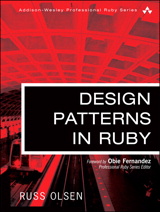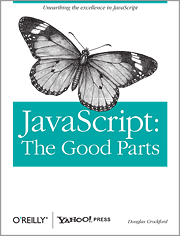Design Patterns in Ruby - book review
I have a friend that is very much into Design Patterns and wanted to learn Ruby with a more applied perspective of the language.
I went the exact opposite direction. I know a little bit of Ruby already and I wanted to improve my limited patterns knowledge.

What we had in common is that we both picked up Design Patterns in Ruby by Russ Olsen. The title can be a little deceiving in that you might think it assumes Ruby knowledge, but no, it actually covers the Ruby language at a level that doesn't bore the reader with programming basics. The book assumes you know how to program already but you're new to Ruby.
After an introductory chapter about Ruby basics, the book delves into Design Patterns, their formal definitions, how they look like in Ruby, how to leverage Ruby features to tweak the patterns, and examples of the pattern being used in examples extracted from the Ruby class library or popular components (gems). As the examples and tweaks are being presented, any new Rubyism being applied is explained.
I found this book to be a great way to learn more about the Design Patterns and the proper way to implement them in Ruby. I also learned a little more Ruby and some language features that I did not know how to use yet.








